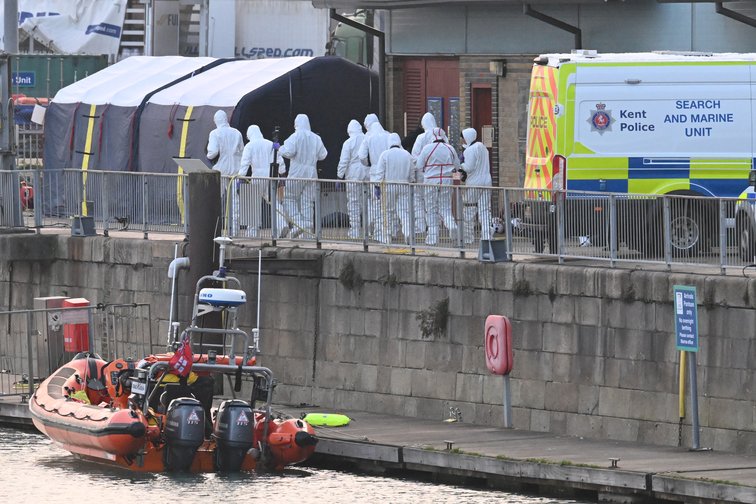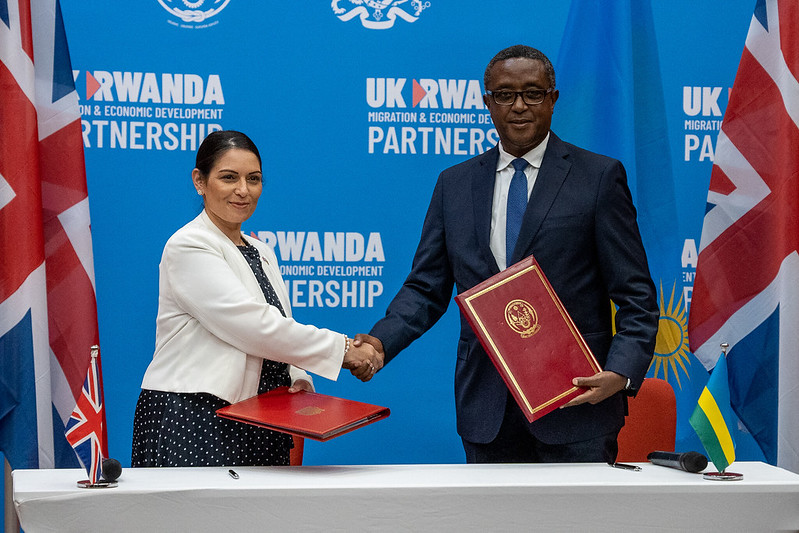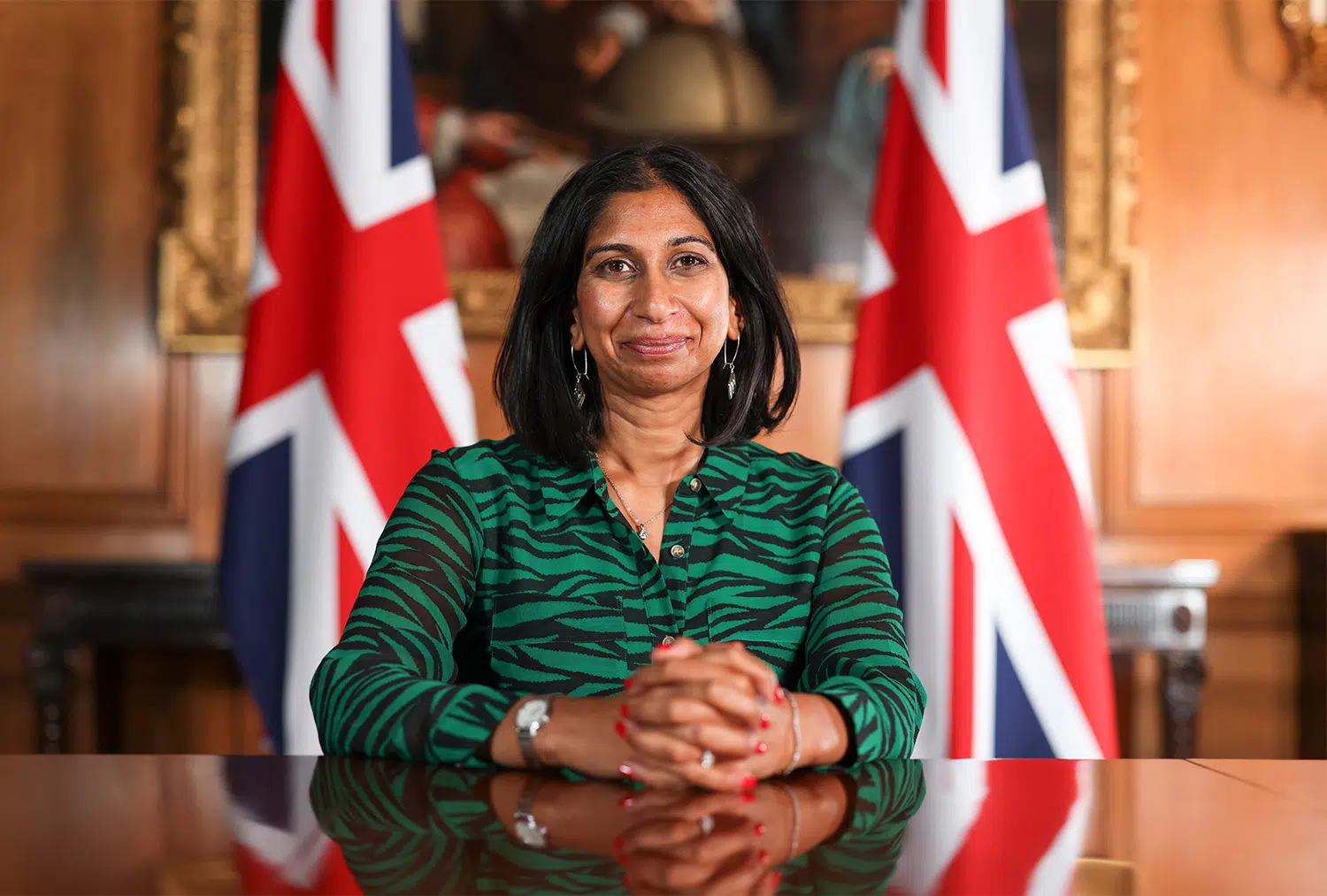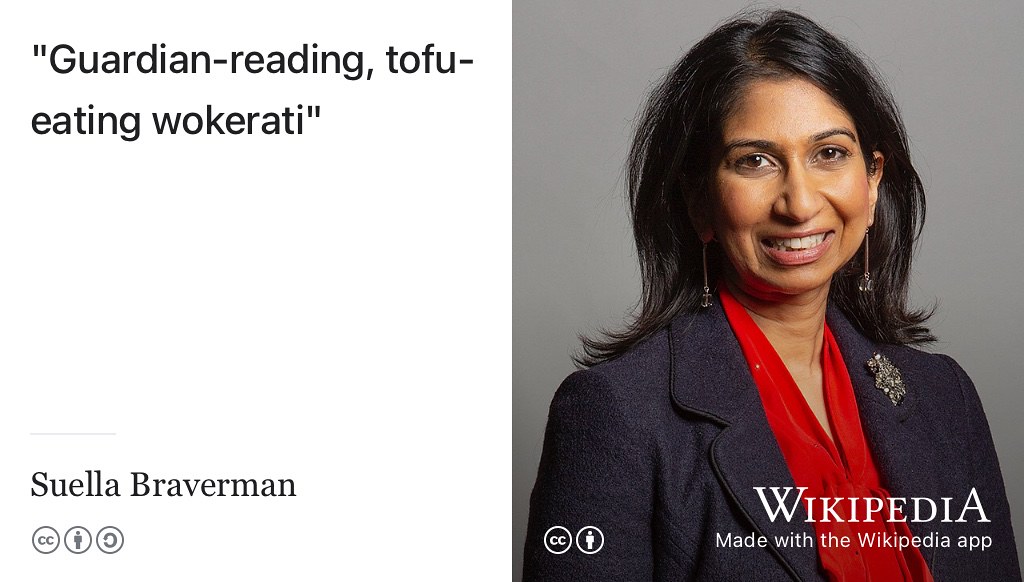‘Small boat’ pilot Ibrahima Bah faces life in jail. He’s a scapegoat
Original article by Danai Avgeri republished from OpenDemocracy under a Creative Commons Attribution-NonCommercial 4.0 International licence.

Those who drive boats are often simply the poorest people on board. Those really at fault still walk free
Ibrahima Bah is today facing a possible life sentence for facilitating illegal entry into the UK, and for four counts of manslaughter by gross negligence. But the real culprits here remain off the hook – and this will almost certainly lead to more deaths.
Arrested in December 2022, Bah was steering an unseaworthy dinghy across the English Channel when it collapsed. The floor of the dinghy ripped when it approached the fishing vessel Arcturus and everyone stood up to try and be rescued. According to Utopia 56, a refugee charity that has announced legal action against the British coastguard and French agencies for this case, authorities failed to launch a search and rescue operation despite being alerted by Alarmphone, a hotline for migrants in distress at sea.
Eventually, four people were found dead while four were recorded missing. Some 39 survivors, most from Afghanistan, were rescued and claimed asylum in the UK.
Asylum seekers dying in the English Channel is not something new. In November 2021, 31 people, including a girl aged five and her teenage siblings, died after their dinghy sank in the Channel. And in October 2020, seven people, including five from one Iranian Kurdish family, lost their lives after a small boat carrying 20 migrants capsized off the French coast.
These are only a few examples in the long deadly history of the French-UK border. But Bah’s case marks a historic and troubling milestone: he is the first shipwreck survivor in the UK to face manslaughter charges for the deaths of fellow passengers.
A network called Captain Support that acts in solidarity with those accused of driving boats to Europe has been closely monitoring Bah’s case. Its members are right to point out the conviction marks a violent escalation in the criminalisation of migration by the UK government under its ‘stop the boats’ campaign and measures to cut net migration.
These have included unlawful and unenforceable schemes, such as the plan to deport asylum seekers to Rwanda; the launch of the Bibby Stockholm barge, leading to suicide and harm among detainees; and the planned introduction of an unattainable 50% increase in salary threshold for foreign workers to be allowed to come to the UK. Britain has also laid out plans to bar international students and care workers from bringing dependents to the UK.
Ironically, this frontal assault on migrant rights comes at a time when polls for the first time since 2016 suggest that most British people hold positive views of immigration, exposing the ‘stop the boats’ battle for its deeply ideological nature. But other aspects of the policy, less routinely covered in the media, have been no less damaging – and these directly relate to Ibrahima Bah’s unjust conviction.
The Nationality and Borders Act came into force in June 2022, expanding the scope of immigration crimes in the UK in response to the so-called ‘small boats crisis’. This act introduced the offence of ‘illegal arrival’ with a maximum penalty of four years in jail. It also expanded the scope of the more serious offence of ‘facilitating arrival’, of which Bah was convicted, and increased the maximum penalty to life imprisonment.
Hundreds of people have since been arrested and imprisoned for simply trying to reach the UK to claim asylum, according to a forthcoming report by Victoria Taylor, published by the Centre for Criminology at the University of Oxford and Border Criminologies.
While the government repeatedly invokes the mantra of favouring ‘safe and legal routes’ when justifying this increasingly draconian legislation, existing laws don’t provide any. As Amnesty International has pointed out: “The UK government does not allow anyone to make a claim for asylum unless they are physically present in the UK… It is impossible to come to the UK for the purpose of seeking asylum in any way permitted by the government’s immigration rules.”
openDemocracy revealed last year that a toddler and a father were among those who had died while waiting vainly for officially sanctioned UN routes to take them to safety; their families remain stranded in Turkey.
Aside from two temporary visa schemes that have been beset with their own problems – for asylum seekers from Ukraine with family or hosts in the UK, and Afghans who are in danger due to having worked with the UK government – anyone wishing to apply for asylum in the UK has no choice but to travel to the UK in an unauthorised manner.
In simple terms, the UK government requires asylum seekers to endanger their lives and break the law in order to exercise their lawful right to claim asylum.
Countering this means more than debunking the myths of ‘safe and legal’ routes. It’s also about addressing the criminalisation of ‘facilitating arrival’ – often presented as a necessary measure to uproot the ‘criminal gangs’ exploiting vulnerable individuals.
In fact, human rights organisations and academic researchers have time and again shown that counter-smuggling policies and targeting of boat drivers harms migrant communities the most. These policies overlook the reality that, in many instances, those piloting boats are the poorest and least resourced among asylum seekers, agreeing to steer these vessels and take on significant legal risks in exchange for free passage.
And indeed, Ibrahima, who is from Senegal – a country still grappling with the effects of colonialism and with 40% of its population living below the poverty line – asserted that this was precisely why he agreed to pilot the boat.
Having journeyed from Senegal to Mali, then Algeria and Libya, before taking a boat from Libya to Italy with the aid of smugglers, Bah decided to pilot the vessel in exchange for free passage. During his trial, Bah said when he realised the boat was unseaworthy, he refused to drive it, but he was then assaulted by those that organised the trip who coerced him into complying. The jury not only dismissed Bah’s claims but also the testimonies of the survivors themselves, who portrayed Ibrahima as an “angel” trying to save lives.
As detailed in Captain Support’s court report, a witness statement from the captain of the Arcturus presented Bah as “mouthy” and ungrateful, both racial stereotypes. The all-white jury concluded that Bah, a Black teenager, had failed in his duty of care towards his fellow passengers. By convicting Bah of manslaughter, the jury effectively exonerated the UK of responsibility for its lethal border policies.
The UK is not alone in this regard. In Italy, four survivors of the Cutro shipwreck are on trial for the deaths of at least 94 people, with one already convicted, despite evidence that the Italian authorities deemed the migrant boat ‘not of interest’ just before the shipwreck. And Greece prosecuted nine Egyptians over the 2023 shipwreck of the Adriana, which killed 600 near the coast of Pylos, despite mounting evidence for the Greek coastguard’s role in the boats capsizing.
Britain’s emulation of these policies is both predictable and deeply alarming. British prime minister Rishi Sunak recently teamed up with Italy’s far-right leader Giorgia Meloni in her attempts to crack down on ‘illegal migration’. And in November 2023, Suella Braverman – then the UK home secretary and the architect of the ‘stop the boats’ campaign – lauded Greece’s “tough but fair migration policy” following her tour of one of Europe’s most harrowing borders. This dangerous coalition, which wields death and scapegoating as tools of deterrence, must be dismantled immediately.
Ibrahima Bah’s sentencing hearing is scheduled for Friday 23 February. Solidarity actions have been called in response, including a call for support at 2pm at Canterbury Crown and a demonstration at 6pm at the Home Office.
Original article by Danai Avgeri republished from OpenDemocracy under a Creative Commons Attribution-NonCommercial 4.0 International licence.




